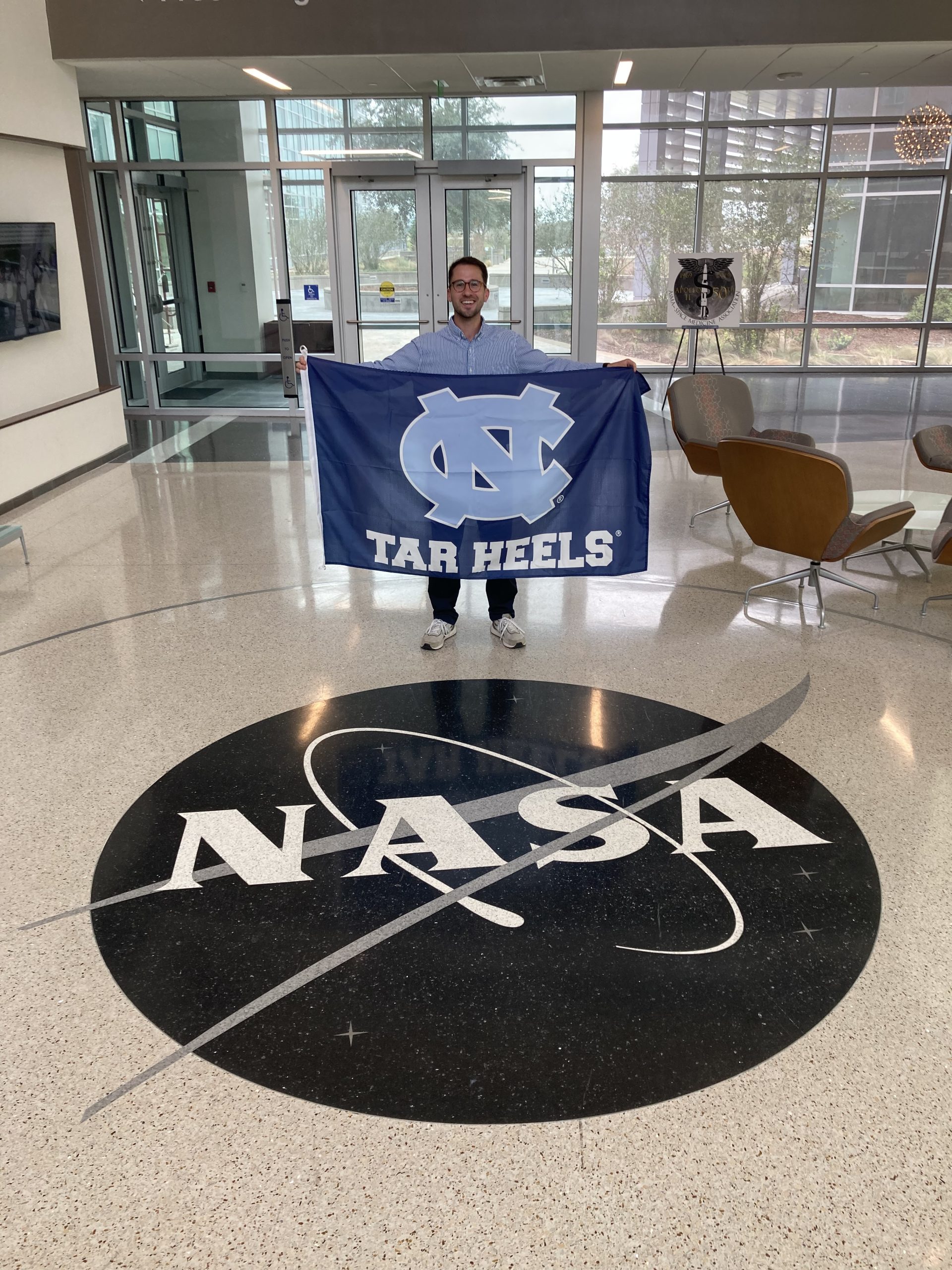October 30, 2023
 Until now, Tom Diaz had only explored and studied the field of aerospace medicine through reading papers, attending conferences and joining the Aerospace Medical Association. He also co-founded Aerospace Medicine at Carolina, a subgroup of the national Aerospace Medicine Student and Resident Organization, in an effort to grow interest in the field among undergraduate, graduate and professional students in schools across campus.
Until now, Tom Diaz had only explored and studied the field of aerospace medicine through reading papers, attending conferences and joining the Aerospace Medical Association. He also co-founded Aerospace Medicine at Carolina, a subgroup of the national Aerospace Medicine Student and Resident Organization, in an effort to grow interest in the field among undergraduate, graduate and professional students in schools across campus.
Everything changed when he was accepted into the NASA/Johnson Space Center Aerospace Medicine Clerkship program, where he had the opportunity to attend briefings, lectures and tours led by NASA scientists, and complete a research project.
“This clerkship has essentially been a month-long structured course about aerospace medicine, so I’m learning from front to end about the field from experts. It’s been a hands-on experience that I wouldn’t have gotten anywhere else,” said Diaz, Pharm.D. candidate, class of 2024 president at the UNC Eshelman School of Pharmacy.
As a pharmacy student, his interest is extremely niche. The clerkship program is geared toward medical students and residents, so Diaz pursued the opportunity by reaching out to the program’s coordinator directly for permission to apply.
With his acceptance, he became the first Pharm.D. student ever to attend the NASA/Johnson Space Center Aerospace Medicine Clerkship program, which has been around for over 20 years. He is part of clerkship class LVIII alongside 14 learners. In addition to Diaz, the group is a mix of medical students, medical residents and practicing physicians—a majority of them are in the U.S. Navy, the U.S. Air Force or the Air National Guard.
For his research project, he was able to work alongside NASA’s Lead Pharmacist, Tina Bayuse, Pharm.D, and Sincy Mathew, Pharm.D., clinical staff pharmacist at Johnson Space Center Pharmacy. “Being able to do research during this was a huge opportunity,” said Diaz. “Doing research in this field is hard because you have to find either an individual or lab to partner with—in this clerkship, you get accepted and then you automatically get paired with a mentor and a research project.”
Diaz’s research focused on pharmacogenomics, or how one’s genetics can affect the safety and efficacy of medication use for ground support and spaceflight. He presented his research during a poster presentation where Johnson Space Center scientists and research mentors were invited. His poster will also be submitted for a presentation at AsMA’s Annual Scientific Meeting in 2024.
“It’s been incredible to be able to meet a group of like-minded students and individuals in various stages of their careers,” he said. “Another highlight has been learning from world-renowned experts—I’ve been reading all of these papers, noticing some reoccurring names, and now they are here in front of me sharing their research.”
Aside from memorable moments of touring NASA’s campus and facilities and meeting astronauts, Diaz shared his main takeaway is having a clearer picture of what his future career holds. His passion for aerospace medicine was confirmed through this experience, and he plans to pursue a two-year residency in clinical pharmacy focusing on critical care while staying active in aerospace medicine organizations and continuing his aerospace medicine research.
The best advice he received during his clerkship was to “find what you like, dive deep into it and become an expert in your niche interest.” Diaz is taking this to heart and the future of pharmacy in aerospace medicine is looking bright.
Latest News

Dean Angela Kashuba receives Carolina Alumni Faculty Service Award

RASP poster presentations capture student research


